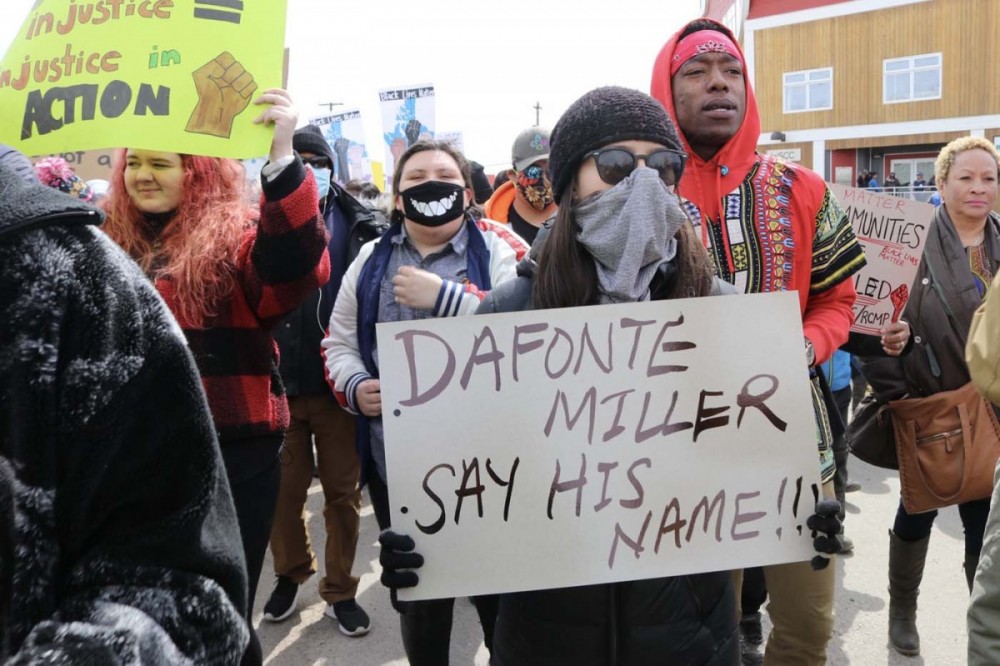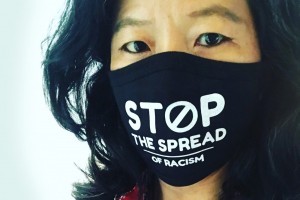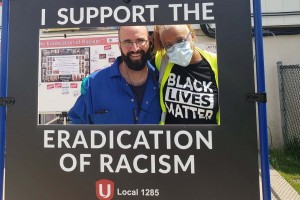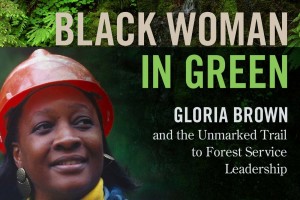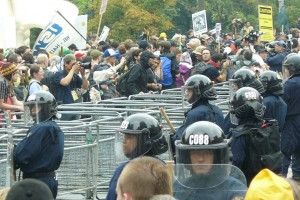“Racial oppression is a traumatic form of interpersonal violence which can lacerate the spirit, scar the soul, and puncture the psyche.” — Kenneth V. Hardy
Dear White Sisters and Brothers,
It is with profound sadness and a deep rage that I write this letter. I have been composing this letter for over a week now, as I have wrestled with why this latest murder, of George Floyd, at the hands of the police has stopped me in my tracks and almost broken my spirit. But, in the words of Maya Angelou . . . and still I rise. I will not be a victim.
You are receiving this letter because I believe you care, and you want to act. I also need you to know how I am feeling so you can appreciate the trauma and what most likely every other Black person is struggling with as they try to stoically march on doing their jobs, fulfilling their obligations, being polite as white folks ask questions, or are silent.
What we really want to do is scream or just go back to bed and pull the covers over our heads until systemic racism is dismantled. We are tired of doing all the heavy lifting, as if the pandemic of racism and white supremacy is ours to fix. You can be outraged, and while I appreciate the solidarity, your lives don’t change. You are not dying, being denied housing, jobs, promotions, health care, education, and the list goes on. Black people just add it to a lifetime of emotional, physical and psychological trauma we experience, and we know it hasn’t ended.
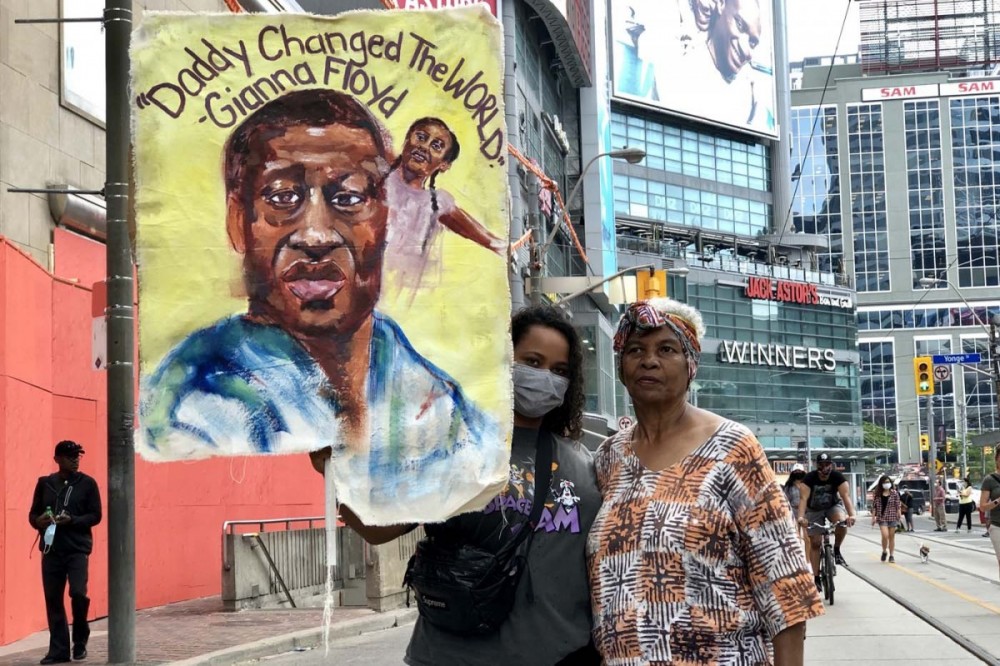
Toronto rally, June 6th. PHOTOGRAPH: ELIZABETH LITTLEJOHN
I come from a proud, social-justice activist, fourth-generation African Canadian family. From an early age I remember being taught not only to stand up for my human dignity, but that I must stand with other marginalized, oppressed groups in solidarity.
During my work life, I have never let injustice rend me without developing an action plan. I am a social-justice labour educator, so my usual response would be to design a workshop, strategize a meeting, etc. I am a mediator, so I would also think about how to facilitate open, honest, critical dialogue and build bridges.
Since George Floyd’s horrific murder at the hands of Minnesota police officers who treated him like a slain animal, one that they were proud to display like a trophy, I am not okay. For the first time in my life, at age 67, I don’t know what to do with my anger, despair and I literally “can’t breathe.”
Perhaps it is the culminating incident of the story of Amy Cooper, who knew exactly how to use her whiteness to “put a Black Man in his place,” potentially inciting a situation where he would be assaulted or murdered at the hands of the police. Then, on the same day, “George Floyd,” all against the backdrop of COVID-19, which has isolated me from my larger family and community – under all that, I am finding it hard to breathe. The pandemic has yet again pulled the curtain back on the growing inequality, when you consider who is disproportionately affected by it. And the murder of George Floyd has shone a spotlight on the deep-seated anti-Black racism that exists globally.
It may be seeing my 94-year-old Mother, who is the most loving, compassionate, optimistic person of Faith that I know, who usually wakes up with a smile and song, now wake up with tears in her eyes. For the first time since she has been living with us since COVID-19 I saw the anguish and hurt in her face as she said, “I didn’t sleep well, I can’t believe this is still happening.”
It may be suppressing what I am feeling in order to not increase the despair, anger, sadness and frustration that our own children are feeling as they ask us, “How do we protect our children, especially our sons.” It may be because my white partner, who knows only too well how racism works, having taken it on within the fire department long before we were together, is deeply anguished about his family’s pain and trauma, knowing we have suffered because white people have too often turned the other way. My partner did remind me though that I do not wallow in victimhood. I do take action. This letter is just one of the actions I am taking.
No matter how I try to distract myself, I can’t stop thinking about this. I am now reliving all the racist incidents and micro-aggressions I have faced on a daily basis throughout the years, as well as racist incidents my children and grandchildren are experiencing.
When I was 10 years old, I was reluctant to go to school because the white boy who sat behind me whispered hateful, racist things everyday, such as how ugly and black I was, "what kind of hair is that . . . you know, black people are stupid. . . ." He tried to erase my humanity every day, until one day I snapped and started punching him, until my teacher pulled me off him.
I never forgot that teacher, who lovingly took me to an empty classroom to calm me down. She said, “I am Jewish, so I know a little of what you are going through and you have to decide how you will handle racism. Fight it with your fists and you will be the one in trouble, or beat it by realizing you will be judged by a different standard, and expectations for you will be low. Therefore, you must excel in everything you do. When all the other kids get 80 per cent, you must get 100 per cent and even with that you will be passed over. It isn’t fair but that will be your life.”
So, I did, I was on the honour roll and I excelled, only to have a guidance counsellor, who I thought the world of, try to talk me out of going into the Arts and Science stream that would lead me to university. He said, “Carol, you are a beautiful girl and you will probably marry early, so why don’t you just go into the commerce stream; it will be much easier, too.” I was so shocked that it took me a few minutes to realize what was being said and I left his office demoralized.
Growing up, my former best friend, who is white, always said we would be each other’s maid of honour. When she became engaged, I was so thrilled, and I was waiting for her to start sharing her wedding plans and to ask me to be her maid of honour. One night at our local pub, I was in the washroom and overheard women who knew my best friend talking about how it was too bad, since I was such a good friend, but she couldn’t have me as her maid of honour, as they couldn’t send wedding pictures back to her husband’s family in his native land with a Black person as part of the wedding party. You cannot imagine the hurt and humiliation as I hid in the washroom, waiting for them to leave before I came out of the stall. I didn’t want them to see me cry.
Then there was the time when I was working as the first human rights director of a large union, and a so-called progressive union leader came up to me before a union staff meeting, in full view of my colleagues, and motioned with his hands around my neck that he was going to “shake the colour out of me,” because of something I had said to a local union. After that incident, I sat in that meeting and I can’t tell you a word that was said as I forced back the tears, tried to process what the hell had just happened and what I was going to do about it. Yet again, the burden became mine. None of my white colleagues spoke out.
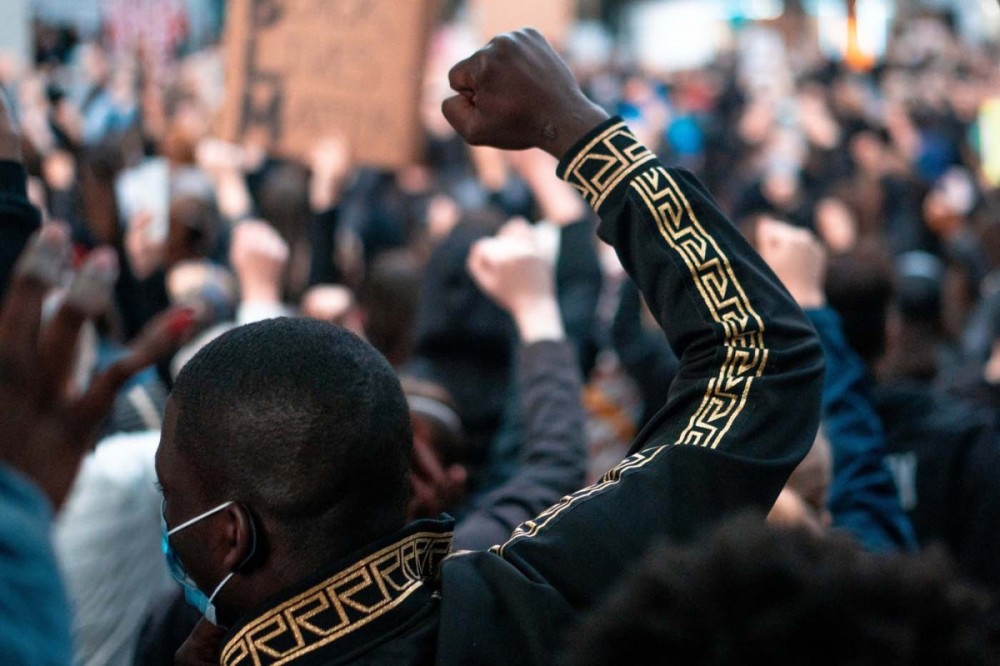
Halifax rally, June 1st. PHOTOGRAPH: NIC TAKUSHI
Most recently, before retiring from my position as Mediator/Regional Director, I raised the importance of making sure our department didn’t go backwards in replacing me — I had been the first Black person in Canada hired as a Mediator and Regional Director. I sent the Director General the resumes of two very qualified Black candidates who never received a call or interview. I was met with surface acknowledgment and, other than an employment equity statement on the posting, having an equity lens on that position wasn’t even considered. I was replaced by a straight white male.
The first lesbian hired by the Federal Mediation and Conciliation Service (FMCS), who had acted in my position when I was away, was asked to be the acting Regional Director upon my retirement because they hadn’t posted my position before I left. During her acting time, they posted the position and she applied for it but was not the successful candidate. FMCS had the opportunity to promote the equity-seeking person who had been successfully doing the job for several months. That would have left a Mediator opening that they could have proactively sought to fill from the pool of other equity-seeking applicants, to ensure a representative staff of Mediators/Regional Directors.
Even though I was retired, I challenged the process. However, it couldn’t be proved, technically, that they didn’t do everything according to the “rules” they had established, which is exactly the problem. Even with an employment equity law at the federal level, white supremacy, which is rooted in all organizations and institutions, allows the continuation of systemic racism unless you develop and institute a deliberate, proactive plan to ensure your workplace isn’t all white.
These are just a few of the stories of the racism I have faced and until now, pushed aside or down, always wanting to be the better person. It is why I have always engaged in social justice and human rights work, even when it put me at risk in my career and other endeavours.
It is time all of this is made public and comes to light so no one can claim “I didn’t know.” I want accountability for the complicit actions that keep systemic racism in place.
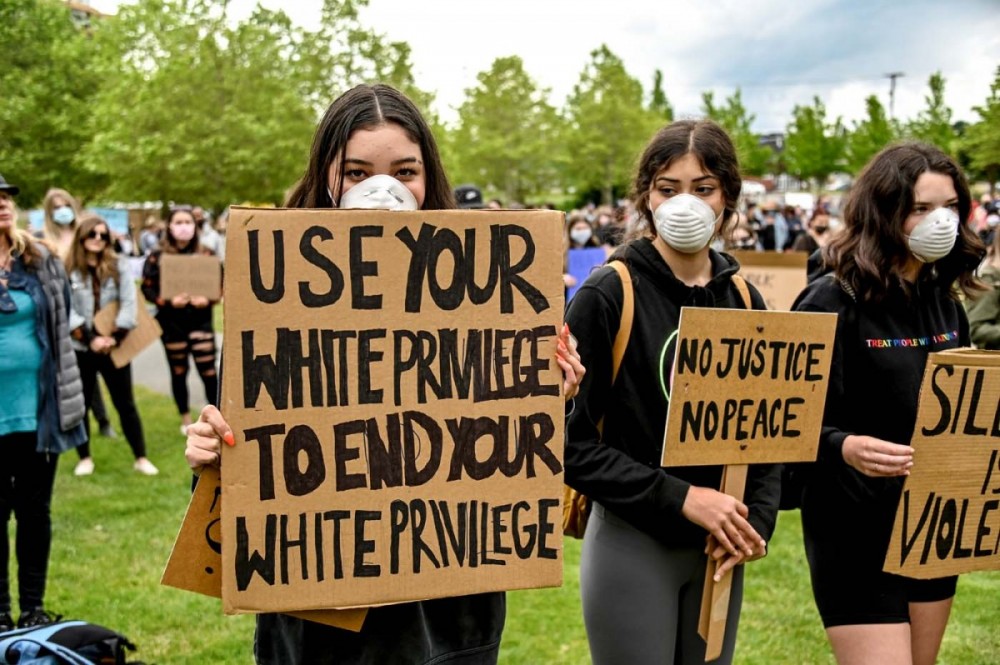
Nanaimo, BC rally, June 5th. PHOTOGRAPH: JOSHUA BERSON
So, this has unleashed something that can’t be fixed by me, but it must be fixed by white people. I need every white person to do their part. I don’t want them to be silent anymore when they witness and hear racist comments. I need white employers to examine their workplace structures, policies and practices and eliminate all the barriers that are stopping equity-seeking groups from living up to their full potential.
Anti-Black racism is a particular evil that requires a particular focus. When you scan your organizations, pay attention to positions of power and authority. If they are all or predominantly filled by white people — racism is alive and well. When you come into a committee meeting or a staff meeting, etc. and it is all or predominantly filled by white participants — racism is alive and well.
I want white politicians, as a starting point, to acknowledge that we live in a racist, homophobic, ableist, Islamophobic, sexist society and that the foundation for this exists in every institution and organization. Secondly, I want white people to do the work and come up with a plan. Then we can talk, because I am no longer carrying the burden. This next point is very important: we don’t want you to speak for OUR community. We want you to speak for and demand changes of YOUR community. It is past due that white people put in the work necessary to demand better for all people and to change your homes, places of worship, corporations, community spaces and political structures – and yes, unions.
I did not create white supremacy and I don’t benefit from it, so those who do must examine and dismantle it. I am not going to watch as our children have to give their children “the talk” about how to act small, timid, don’t move, keep your hands in plain sight, don’t ask questions when stopped by the police. I also don’t want to have to watch my grandchildren cry when they have been playing with their white friends all through their formative years and once they reach their teen years, when possible romances begin, they are suddenly “not invited” to the party.
The examples and list of the ways that Black people and Indigenous peoples, whose land we all reside on as Settlers, have been humiliated, disrespected, and dehumanized can go on ad nauseum, from the demolition of the small Black community of Africville to make way for a garbage dump in Halifax, to residential schools, to the Sixties Scoop.
It stops today, because this is a turning point as I demand action, no more comfortable conversations. Do the work you need to do, as the Black community will be organizing and demanding accountability.
I would also ask you to watch Reverend Al Sharpton speaking at George Floyd’s first memorial, on June 4, and ponder his words: “Black people do not want any favours, but we need you to take your knee off our necks, so we can be what we dream to be, 401-plus years of slavery is enough.” Please view the video of Martin Luther King Jr. giving an interview on May 8, 1967 and speaking of the historical roots of racism and white supremacy. Watch the TED Talk by David R. Williams called “How Racism Makes Us Sick” and, finally, view this June 8 video: “The last 4 minutes of John Oliver’s ‘Last Week Tonight With John Oliver.’”
Please don’t make the mistake of taking comfort in thinking these issues aren’t “as bad” in Canada. I would also ask you to read an article from the Toronto Star by Jason Miller: “Why the Black struggle in Canada has all but been erased. Two historians explain our blind spot.” That both Ford, Premier of Ontario, and Legault, Premier of Quebec, dismissed the reality that systemic racism exists in their provinces speaks volumes to the denial and dismissal of anti-Black racism at the highest levels of provincial governments.
I hope this letter gives you some insight and you will reflect on what it is you can and will do. I am determined, until I can no longer breathe, to work to leave a “better world” not only for my grandchildren, but for all our grandchildren.
Peace,
Carol Wall
Carol Wall is a long-time union educator, social-justice and community activist.


